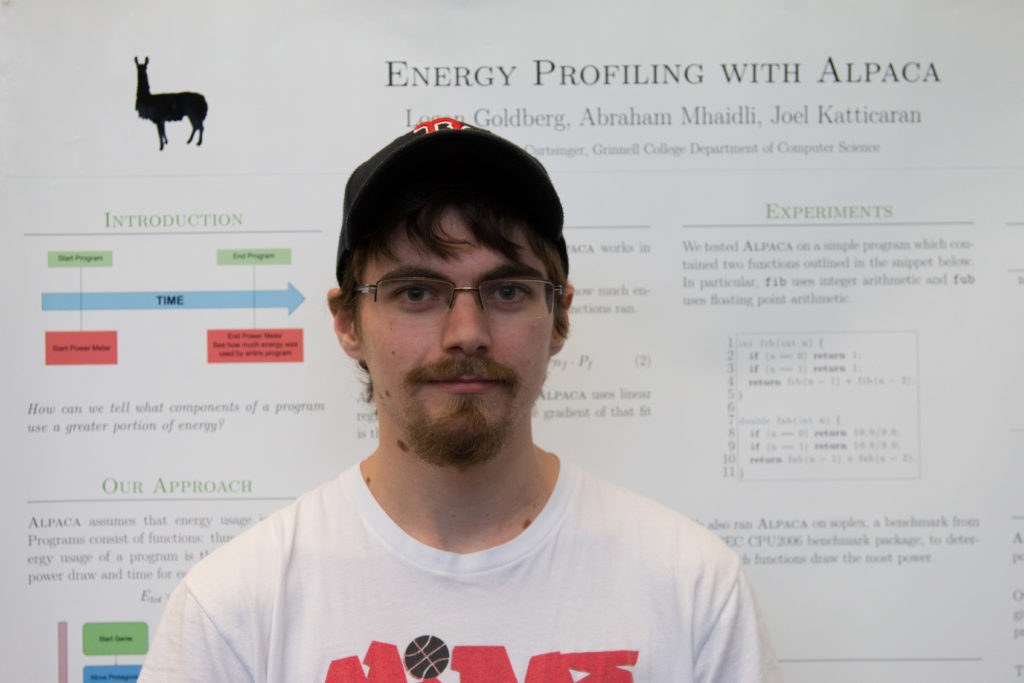
Abraham Mhaidli ‘17
“Energy Profiling with Alpaca”
Global warming is the biggest threat to humanity. We wanted to stop global warming with comp science, so we thought, let’s build energy efficient technology. Right now, that’s based on hardware—better lighting, better wires, etc. We were like OK that’s boring, let’s look at software, how to make energy-efficient software. … Our program will tell someone else’s program what parts of the program is energy efficient. Roughly, we’re given a time sample, we see what was running and how much energy was being used, then use a bunch of equations and statistical analyses to figure out the energy usage.
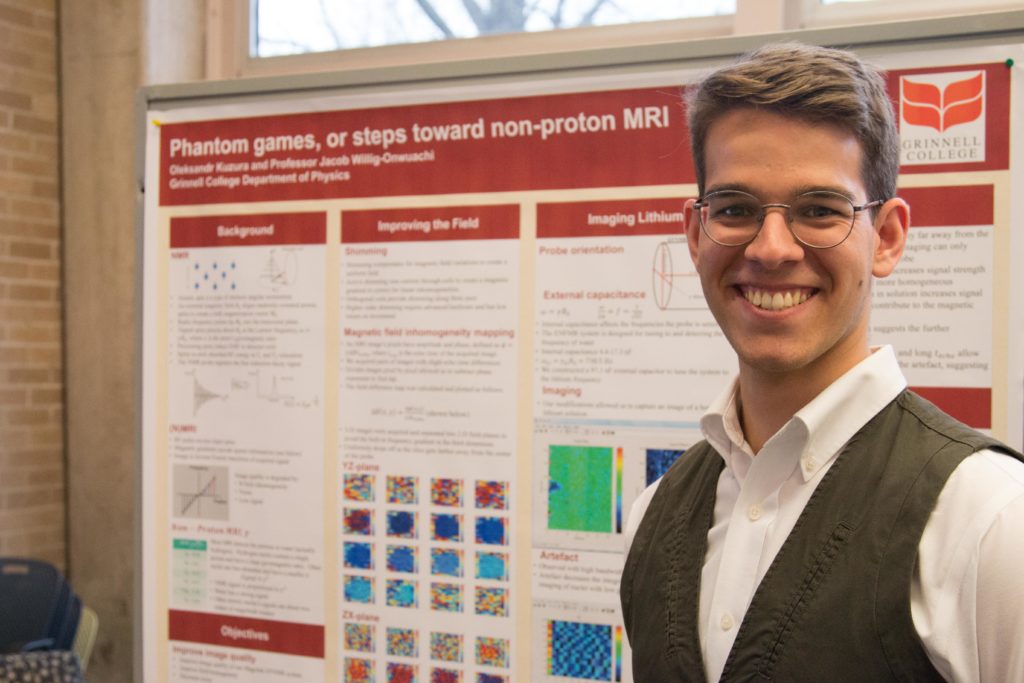
Sasha Kuzura ’17
“Phantom Games, or Steps Toward Non-Proton MRI”
If we could image carbon in the body, we could get very very specific images that would be much more useful than the current MRI which gives us pictures of water in the body. Unfortunately carbon’s magnetic signal is hundreds, thousands, perhaps millions of times smaller than waters signal. We are improving a concept that we can modify an MRI machine to scan things with a fraction of a signal. We were able to successfully image lithium, which has about one percent of water’s signal. Carbon’s down the line.
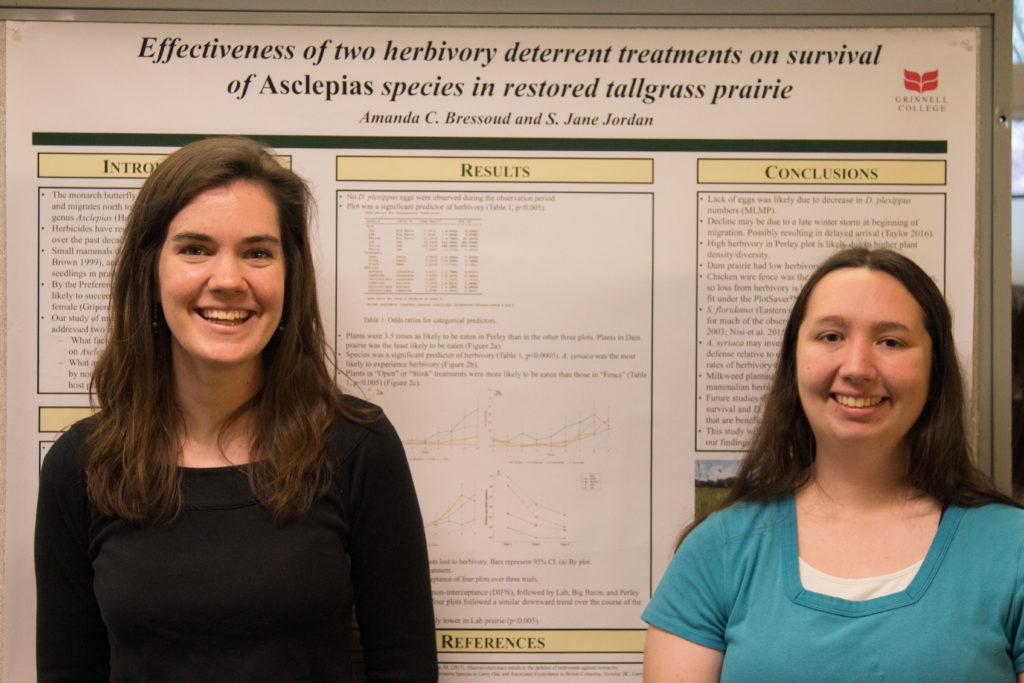
Jane Jordan ’18 and Amanda Bressoud ’17
“Effectiveness of two herbivory deterrent treatments on survival of Asclepias species in restored tallgrass prairie”
Bressoud: We looked at monarch butterfly position preference—so which species of milkweed monarch butterflies prefer to lay their eggs on, since monarch butterflies and milkweed numbers have been in decline. This project is a conservation effort for both species.
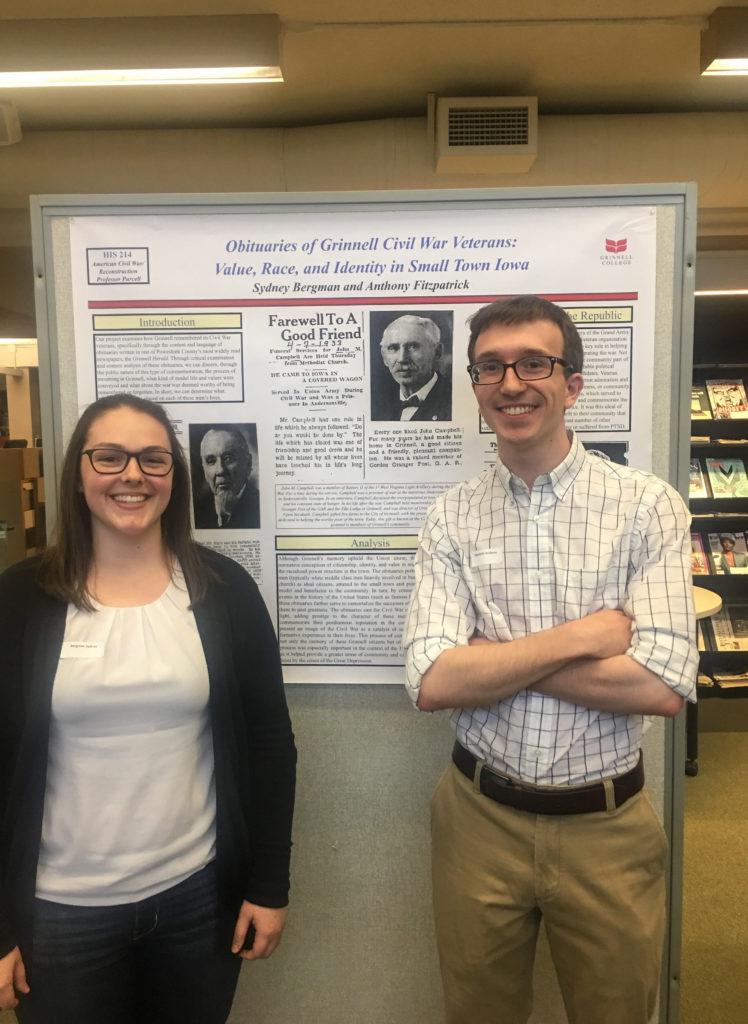
Anthony Fitzpatrick ’18
“Obituaries of Grinnell Civil War Veterans: Value, Race, and Identity in Small-Town Iowa”
We studied civil war obituaries, which are very much reflective of what is assigned value in a society and ideal citizenship. We analyze historical records of obituaries and saw how they emphasized the value of white, male veterans that was very much tied to their identities as citizens. The Civil War and their experiences in the Civil War were used almost as platforms for their upstanding citizenship. Our research is adding to a small body of research on obituaries—there hasn’t been that much work done on them.
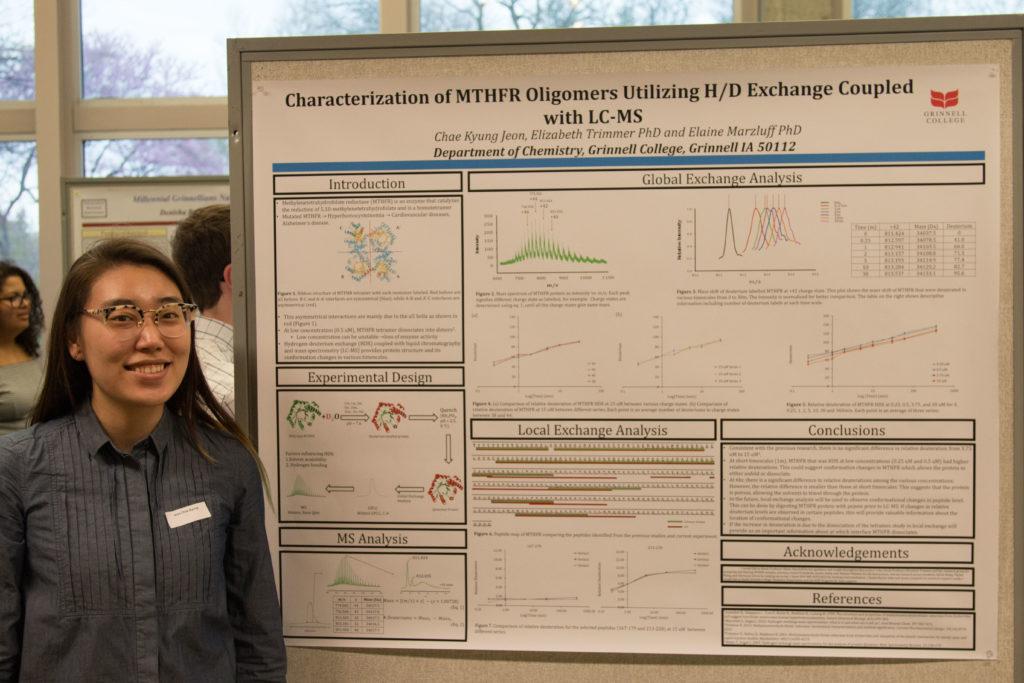
Chae Kyung Jeon ’17
“Conformational analysis of MTHFR and binding site mutants utilizing hydrogen-deuterium exchange and mass spectrometry”
We were particularly interested in a protein MTHFR, which is in the human body. Problems with this protein can cause cardiovascular disease, and also it is heritable … We did conformational analysis of this protein that can be then used for further research on potential drug design that could manipulate [MTHFR] or its mechanism.





















































